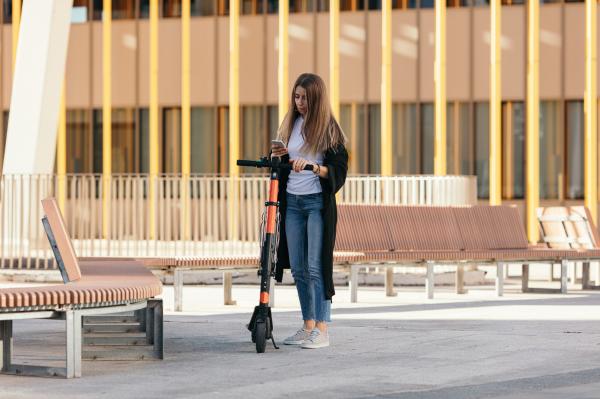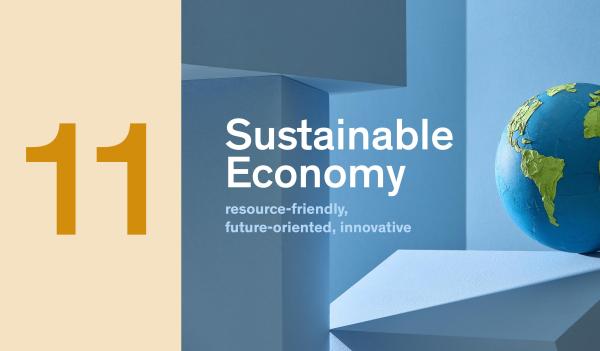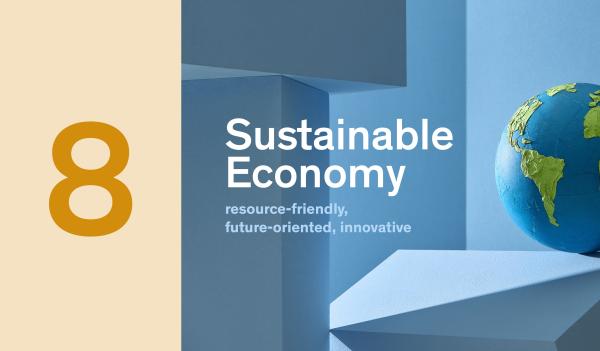Sustainable Behaviour
Collectively, individual consumer choices shape a society’s environmental footprint. The Swiss Sustainable Consumption Observatory (SSCO) is a repeated, cross-sectional survey of Swiss residents in all major language regions that provides insights into behaviours and trends related to sustainable consumptions.

Background
The SSCO is a synthesis activity of NRP 73. It brings together scholars from different research projects in the subject area of sustainable consumption to integrate and enhance our knowledge concerning Swiss residents’ sustainable consumption. Its core consists of demographically representative, periodic surveys among Swiss residents from all parts of Switzerland on three broad domains of consumption: food, clothing and electronics. The team is made up by researchers from UNIL (Czellar), ZHAW (Blumer) and ETHZ (Schubert).
Aim
The goal of the SSCO is to develop a thorough understanding of Swiss consumers’ attitudes, motivations, and behaviours towards sustainable consumption, as well as how these develop over time. It shall inform decision makers in industry, which are faced with growing societal pressure and consumer demand for more sustainable products and services, as well as policy makers and further societal actors (e.g. environmental NGOs) that want to steer our economy, and society at large, towards a more sustainable future.
Results
So far, two survey waves have been conducted and a third one started in autumn 2023. The first (n=1264) was fielded in January 2022, the second (n=1167) was fielded in November 2022. They allow for insights into behaviours and attitudes related to sustainable consumption that draws from a representative sample of the Swiss population in the German, French and Italian language region. Key findings of the first two waves include:
- Awareness of, and engagement in, sustainable behaviours seem the most developed in the domain of food, followed by clothing. When it comes to consumer electronics, there seems to be considerably less pronounced pro-environmental attitude and behaviour patterns.
- Pro-environmental motivations are related to these behavioural patterns. Specifically, when purchasing food, consumers report thinking about their relationship with the natural environment more often than when purchasing clothing or electronics.
- When it comes to food, half of the consumers see themselves as omnivorous and one-third as flexitarian, while around 10 % define their diet as either vegetarian or vegan. However, a majority mention the intention of reducing their meat and dairy product intake. Most consumers report wasting up to 10 % of the food they buy but quite a few intend to increase their consumption of food past its expiry date.
- Swiss consumers now buy more than 40 % of their garments online. The most frequent reasons for buying is replacement of damaged clothes and the desire to get a fancied item. Only a minority mention repairing clothes as an alternative to new ones and acquiring second-hand clothing is no prevalent behaviour in Switzerland. Buying fewer garments, and specifically, buying fewer fast fashion garments, feature among the top priorities of the samples of respondents.
- When it comes to electronic appliances, consumers buy more than half their devices online. The most frequent reason to acquire a new device (advanced by three-quarters of the respondents) is to replace a broken or not properly functioning one. In terms of perceived environmental impact, the most important priorities are using electronic devices for longer and having them repaired only when broken.
- Our results show that sustainable alternatives in the food and clothing sector are not perceived by most consumers as being of lower quality than their conventional counterparts. In the electronics domain, consumers predominantly do not view sustainable devices as less fashionable or trendy than mainstream products.
Implication for research
There exist a number of research projects and surveys that provide information on sustainable consumption in Switzerland. However, most of these focus on and probe into specific domains of consumption (e.g. food). In contrast, the SSCO covers several domains of consumption, allowing for comparison. Furthermore, its longitudinal design allows to identify trends and serves as a reference to assess the impacts of real-world events and developments, such as international conflicts, pandemics or inflation. To that end, other researchers are given open access to the SSCO data.
Implication for practice
Throughout the development process of the SSCO, various decision-makers from the private and public sector as well as NGOs have been involved and results have been widely shared and discussed with various stakeholders. Through this dialogue, the SSCO has the potential to become a platform that connects academics with a wide range of societal actors (e.g. by taking up upcoming issues brough up by an outside organization or by feeding back specific results and analyses tailored to various communities).
Projects









